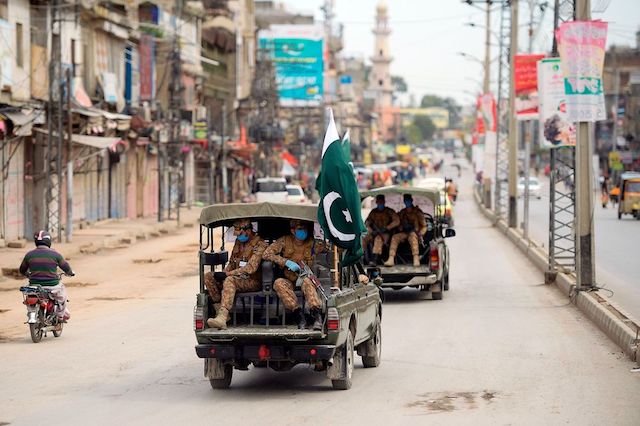Despite relentless critique by the opposition bent upon making political capital out of potential catastrophe, and virtually in confront the media “sold” out on selling misinformation, distortion of facts and spreading lies across a broad swath of the masses, force multiplied by a truly irresponsible social media. PM Imran Khan’s govt is still coping well with the current pandemic. An apocalyptic medical emergency having hit a rather weak health care system hard has all indications of creating panic in the face of impending havoc. The PM has convincingly spoken several times to mitigate the developing fear the electronic media is busy creating among the populace. This negative role has national security implications. Given the weak state structure inherited from corrupt self-serving past requires. He has reacted to the situation as fast as it is possible to the best of its ability. With looming gaps in the health care and public cleanliness the impossible cannot be bridged now in a short time. Only an organised all out effort by our ill-equipped measures can lessen the havoc.
While the new coronavirus is highly contagious it is established that most of the infected who have mild symptoms of fever and cough recover after a couple of days to a maximum of two weeks. The death rate (just below 10%) is highest in Italy, even there 90% of the afflicted recover with most of the fatalities among the elderly or people with a weak immune system.
Without playing down the danger to public health one must put it into context all the hazards threatening millions of lives in Pakistan. Among them are a failing economy and spreading poverty, probably food riots if and when food is not available or too expensive and complex with law and order problems. One can have a full lock-down or curfew in big cities, this may lessen massive infections but will ruin the economy if the supply lines are interrupted not only for agriculture but industries. With lives at stake presently, can we effort to endanger future livelihood?
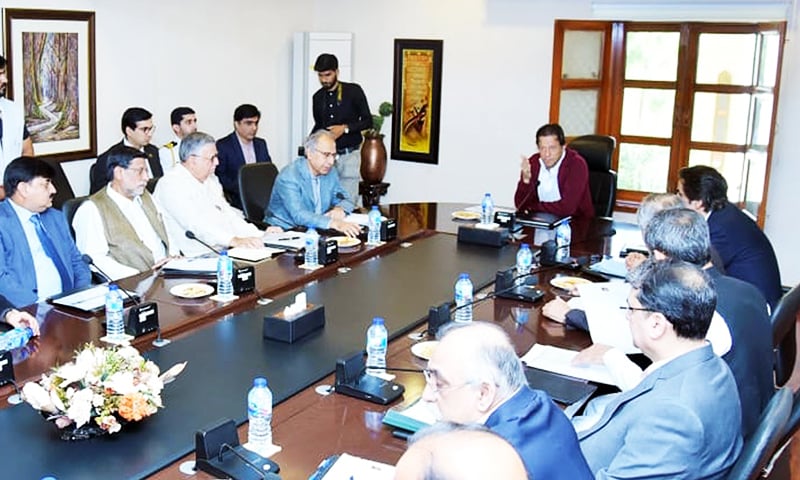
It must be what Imran Khan has had in mind when addressing the public, the medical specialists and the political leadership to ‘discuss and reassess’ the situation in the country and adjust the measures planned and/or implemented. His is a sensible understanding about the adjustment to the existing situation as it evolves and as the impact points of the crisis become clear. With all the previous pandemics in the world have hardly impacting our country, there is no precedent to follow and/ or ready-made recipe to employ. Even the west with its much better developed health care systems, medical research and experience with previous epidemics are in a state of ‘learning by doing’, every two or three days they are making the necessary changes.
The most important message that Imran Khan is trying to deliver is that the economic outfall of the lock-down would be much more dangerous than the medical one. Days into given partial lock-down we are clearly strangling our fragile economy.
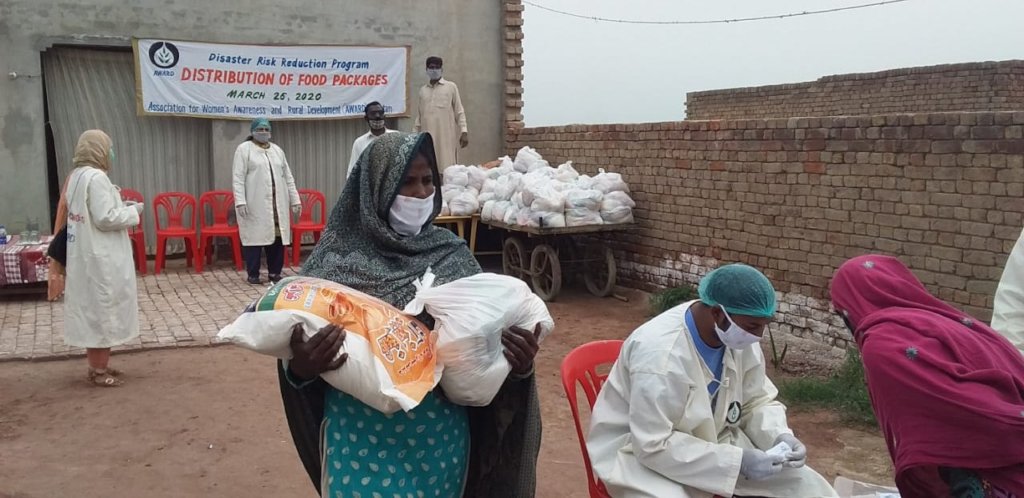
Shortage of foreign-exchange reserves on the shoulders of plunging demand and global supply-chain contagion could send Pakistan’s economy to the morgue. The IMF reaction putting aside long held principles and promising help is an excellent sign. Imran Khan has lifted the ban on goods transport movement and decided to allow opening of food-related industries to ensure adequate supply of essential items during the nationwide lockdown. Core Pakistani industries like the textile factories have to keep working. The employees need the jobs and the country needs the industry. Less people may get infected by the virus but many will die from hunger and others diseases when they have no money to buy medicines and no transport to reach help. We have already interrupted the supply chain, milkmen are giving milk free in their own localities because they could not get the milt to market, so is the state of vegetables which are perishing rather than getting to markets. The govt has taken a wise decision in purchasing wheat in Sindh already, the complete threshing throughout the country will be possible only by end of April. By the end of May the unemployment rate in Pakistan could surge by several millions. A rough estimate based on Pakistan Bureau of Statistics data suggests that approximately 4.2 million salaried-class workers could end up jobless by the end of this period, my own estimates are nearer 8-10% i.e. as many as 4-12 million people. Workers should be provided with masks and disinfect, be alerted to keep two meter distance from each other and avoid physical contact.
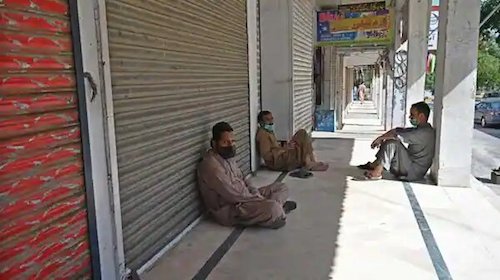
The daily wagers and their families are hit hardest by the loss of their income. For rations to be distributed and a network with that intention has to be developed on a war footing. It is good that wage support to enterprises is being planned as is direct income support to daily wagers. Here the local governments could be employed. Rations have to be delivered to the district governments and by them furthered to the union councils. They have to organize a scheme for distributing the ration to the needy families. The local “tandoor” in each locality in the urban areas could be made the central point of distribution, here a representative of the union council and law enforcement agencies must be designated for keeping order and oversee the distribution. One person of each family would come and collect the ration and a time schedule has to be devised so that not all come at the same time and no crowd is formed. People have to wait at a distance from each other for their turn and together with the roti other items are also handed out. Arrangements to prevent misuse have to be put in place.
The major issue is the impending financial crunch. Already under heavy financial burden there is a need in Pakistan to keep the burden of the state as small as possible which means that the interest rates have to be brought further down to close to zero as it has been done internationally. The so-called “hot money” having mostly gone, what is remaining is most possibly going to stay. Having good profits last year and the years before, the banks should share the financial burden of the country. In any case almost 70% of these profits came from T-Bills, the interest in any case paid by the public exchequer. Pakistan’s stock market on any case does not have any relevance to the market situation and to commodity prices, it is at best gambling den that also doesn’t need the State Bank of Pakistan’s (SBP) support. This situation requires the financial burden being shouldered by those who can afford it. It is the solidarity with the weak in such times that makes a nation. Even Pakistanis abroad can help. Keeping in view the devaluation of rupee against the dollar, one would urge would urge overseas Pakistani to deposit funds into the account that would be set by the SBP to help lift the pressure off the rupee.
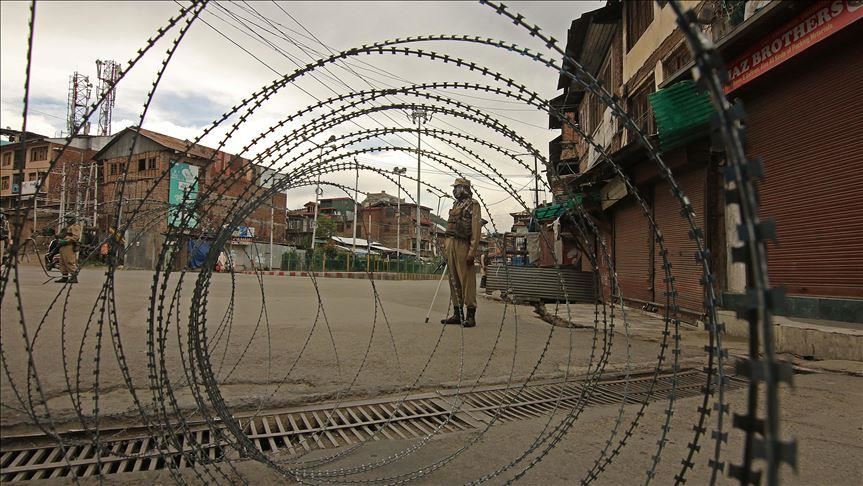
Lockdown is important but has to be graded and phased to balance saving of lives against the saving of livelihood. We cannot blindly follow examples of other countries, which on many case we making slanders and adjustments thereof every few days as the situation is fluid. Every country, in fact even different Provinces (or States) within any country will have a response peculiar to it, those playing politics are playing mindless politics with the lives and livelihood of people. While the west has considerable financial resources to contain the economic downturn and the recession they are already facing, Pakistan does not have that luxury. We have to ensure that the livelihood of people is not damaged beyond repair by blindly emulating western countries and China. What needs support is our mainstays of agriculture, wheat and cotton. Flour mills can be kept open but cotton provides employment in textile and allied industries. We have to risk keeping our textile industries going. The most important requirement is that the epidemic and the subsequent economic hardship can be defeated by the united effort of the entire nation, not by the government alone. While leadership in this crucial situation is certainly important, a rational, honest and compassionate leadership that mobilizes the nation, especially the young people is only the response to this, the joint effort of all of us that can defeat the crisis is by balancing the protecting of lives with livelihood


